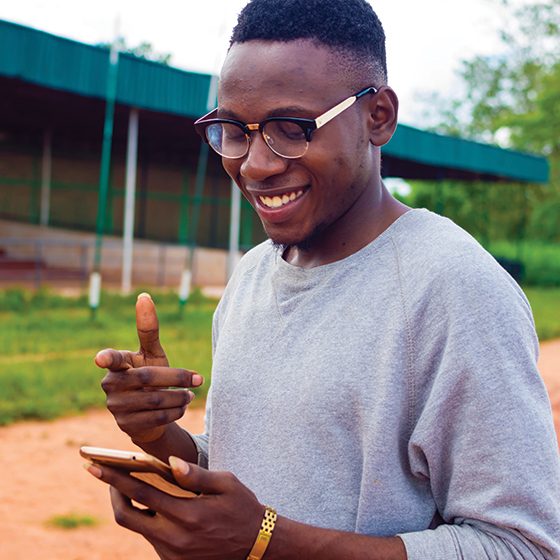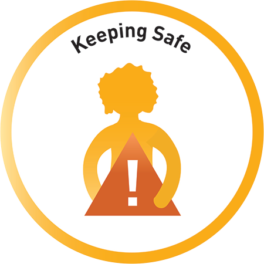Keeping Safe
Growing up and becoming independent includes learning how to stay safe. If you are starting to go out independently, alone or with a friend, you should talk about how to stay safe with your parents. Discuss the rules below and add some more of your own:
My friends have had mobility training which has helped if I need support from them. This helps me to have some independence without adults.
- Take a mobile phone that has credit and a full charge
- Make sure your parents or a trusted adult knows where you are
- Stay within safe areas and areas that you know well
- If you ever feel unsafe or unsure, call your parents or a trusted adult
Getting out and about
Some young people with BBS are partially sighted or severely sight impaired. They receive specialist support from a range of people, including Vision Impaired Specialist Teachers and Mobility Specialists. Mobility training provides support to young people who have low vision. They may learn how to get around using a cane, how to plan and follow a route in their local area or be taught strategies for staying safe when crossing roads. If you would like mobility training so that you can remain as independent as possible, speak to your parent/carers or healthcare team.
Social media and digital safety
Lots of young people spend quite a bit of time on the internet. Some young people have even said they prefer it to TV as it is more interesting, and they can do lots of things very quickly. Many young people know how to use a range of apps and can use game consoles for chatting to friends or accessing different areas of the internet. The internet and social media (Facebook, Twitter, Instagram, Snapchat, etc.) have brought a lot of exciting and interesting things to our lives, but unfortunately, they can also be scary and dangerous if not used safely.
Discuss the rules below with your family, you may want to add some of your own:
- Never give out personal information or send photos to people you don’t know
- Tell an adult if you find something that you don’t think is right or that makes you feel uncomfortable
- Don’t give out your password
- Tell an adult if someone says or does something mean online
- Never talk to people who you do not know
- Never agree to meet people
- Show your parents/carers/trusted adult how you use the internet/social media
- If you use Facebook, only add people (‘friends’) you know and have met in real life


